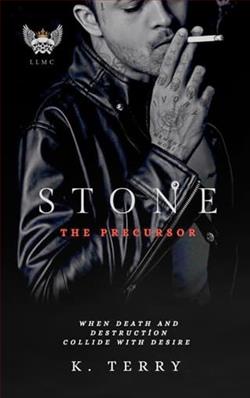Page 115 of Rose
Ahzii looked confused.
Back then, she’d hosted a ton of showcases, rotating work from up-and-coming Black artists all across the city. Some she never even met in person. It had been about giving space, she never thought about how many lives it may have touched.
“Wait… really?” she asked, genuinely shocked.
“You probably don’t recognize him,” Savior said, stepping closer. “After the army, he was homeless. Not every vet gets the benefits they’re owed. When I called him about getting into this sold-out showcase formy wife,he asked who I was married to.”
Ahzii rolled her eyes. “No one, because I’mnotyour wife.”
Savior ignored her. “I said your name, and he remembered you right away. Said you saw him painting on the street one day. Everyone else thought he was just some cracked-out dude with a paintbrush, but you saw an artist. A person. You bought one of his pieces—paid way more than he was asking—and put it in your showcase. Gave it a title. A space. A price tag that matched its worth.”
Ahzii’s chest tightened, memories flickering in her mind like light through broken blinds.
“He told me he walked into your show that night, saw his painting on display, and how much money you’d made off it—forhim.You gave him all of it. That one night gave him enough to get off the street. From there, he got a job. A place. And eventually… this.”
Savior motioned around them at the museum, the people, the curated beauty Keon now called his.
And it all clicked.
Ahzii blinked. Her voice came out soft. “He told me his name was Harlem.”
“That’s his artist name. He’s from Harlem, but his real name’s Keon.”
She looked across the room where Keon—Harlem—was laughing with a small group, holding a glass of wine like he owned the air around him. She smiled, proud.
“Your art saved his life, Allure,” Savior said, watching her face closely.
Her eyes didn’t leave Keon. “It did,” she whispered, more to herself than him.
But he heard her.
“Why didn’t he say anything just now?” she asked, still watching the man who’d once been a stranger painting on the sidewalk.
“Didn’t think you’d remember,” Savior answered. “Said that was a low point in his life. Doesn’t like talking about it.”
Ahzii nodded slowly. She understood that. Completely. Because she was still living in her own low point.
But for the first time in a long time, standing here, surrounded by art and history she helped shape, something flickered in her chest.
Hope.
“What made you buy his art that day?” Savior asked, their steps slow as they wandered through rows of sculptures and paintings.
“I related,” Ahzii replied quietly.
She didn’t look at him, her eyes scanning the artwork, but her voice carried weight.
“My brother and I grew up homeless. Ran away from our foster family and ended up on the streets. A’Mazi turned to fast money, and I got a job at this little diner, but it was never enough. Not to make us happy. Not to make us feel safe.”
Her voice stayed even, but Savior saw the emotion flicker in her eyes.
“Art was our light in the dark,” she continued. “We used to tag buildings with anything we could find—paint, markers, even fucking chalk. We’d steal supplies from the school’s art class just to come home and create the life we wished we had through brushstrokes and color.”
Savior said nothing, just watched her with a soft smile.
She didn’t even realize she was opening up. She said it like she was listing off grocery items, but he could hear the history buried beneath the flatness. Feel the weight she carried.
“My brother made this one piece calledThe Joy in Chaos.I don’t know what happened to it after we got adopted and moved in with our mom, but it was the most beautiful thing he ever painted. It captured our childhood in color. The madness, the noise, the survival—but in the middle of all that mess, there was joy. There was us.”















